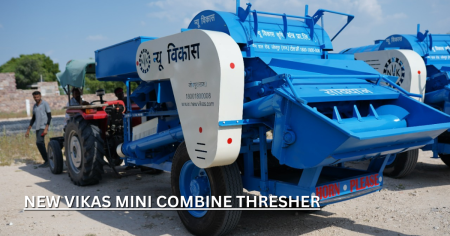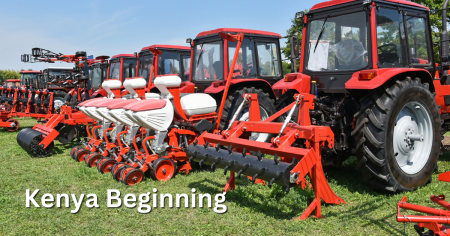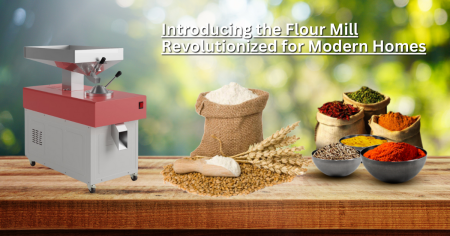In the ever-evolving landscape of agriculture, technological advancements play a pivotal role in transforming traditional farming practices. The latest machinery innovations have not only ushered in a new era of efficiency but also promise to redefine the future of agriculture. In this blog post, we explore the cutting-edge technologies that are revolutionizing the way we cultivate and harvest our crops, making agriculture more sustainable, productive, and environmentally friendly.
1. Precision Farming: Enhancing Efficiency with Smart Technology.
Precision farming has emerged as a game-changer in modern agriculture. Through the integration of smart sensors, GPS technology, and data analytics, farmers can now optimize their use of resources such as water, fertilizers, and pesticides. This not only reduces environmental impact but also maximizes yields and minimizes waste. Precision farming empowers farmers to make informed decisions based on real-time data, ensuring that each square meter of the field is utilized to its full potential.
2. Autonomous Farming Vehicles: The Rise of Smart Tractors and Harvesters.
Imagine a farm where tractors and harvesters navigate the fields autonomously, guided by artificial intelligence. This is no longer a futuristic concept but a reality today. Autonomous farming vehicles are equipped with advanced sensors and AI algorithms that enable them to perform tasks such as planting, plowing, and harvesting with incredible precision. These smart machines not only save time and labor but also contribute to fuel efficiency and reduce the overall ecological footprint of farming operations.
3. Vertical Farming: Growing Up Instead of Out.
As arable land becomes scarcer, vertical farming has emerged as a revolutionary concept. This innovative approach involves growing crops in vertically stacked layers or inclined surfaces, often within controlled environments like urban warehouses. Vertical farming reduces the need for vast expanses of land, minimizes transportation costs, and allows for year-round crop production. With the right combination of LED lighting, hydroponic systems, and automated climate control, vertical farming is redefining the possibilities of sustainable agriculture in urban settings.
4. Drones in Agriculture: Aerial Intelligence for Crop Management.
Drones are no longer just a hobbyist’s gadget; they have found a crucial role in agriculture. Equipped with high-resolution cameras and sensors, drones provide farmers with invaluable aerial intelligence. From monitoring crop health to identifying pest infestations and assessing the effectiveness of irrigation, drones contribute to more informed decision-making. This not only enhances overall crop yield but also allows for targeted interventions, reducing the need for excessive pesticide or fertilizer use.
5. Robotics in Agriculture: From Seed to Harvest.
The integration of robotics in agriculture is streamlining various processes, from planting seeds to harvesting crops. Robots equipped with specialized arms and sensors can perform delicate tasks such as weeding, pruning, and even harvesting fruits and vegetables. This not only addresses labor shortages but also ensures a level of precision that is challenging to achieve manually. Robotics in agriculture represents a significant leap towards sustainable and efficient farming practices.
In conclusion, the latest machinery innovations are reshaping the agricultural landscape, promoting sustainability, and addressing the challenges posed by a growing global population. As farmers embrace these technologies, the future of agriculture looks promising, with increased efficiency, reduced environmental impact, and a more secure food supply for generations to come. Stay tuned for more updates on the exciting developments in the world of agricultural technology!

 Solar Water Pump
Solar Water Pump


